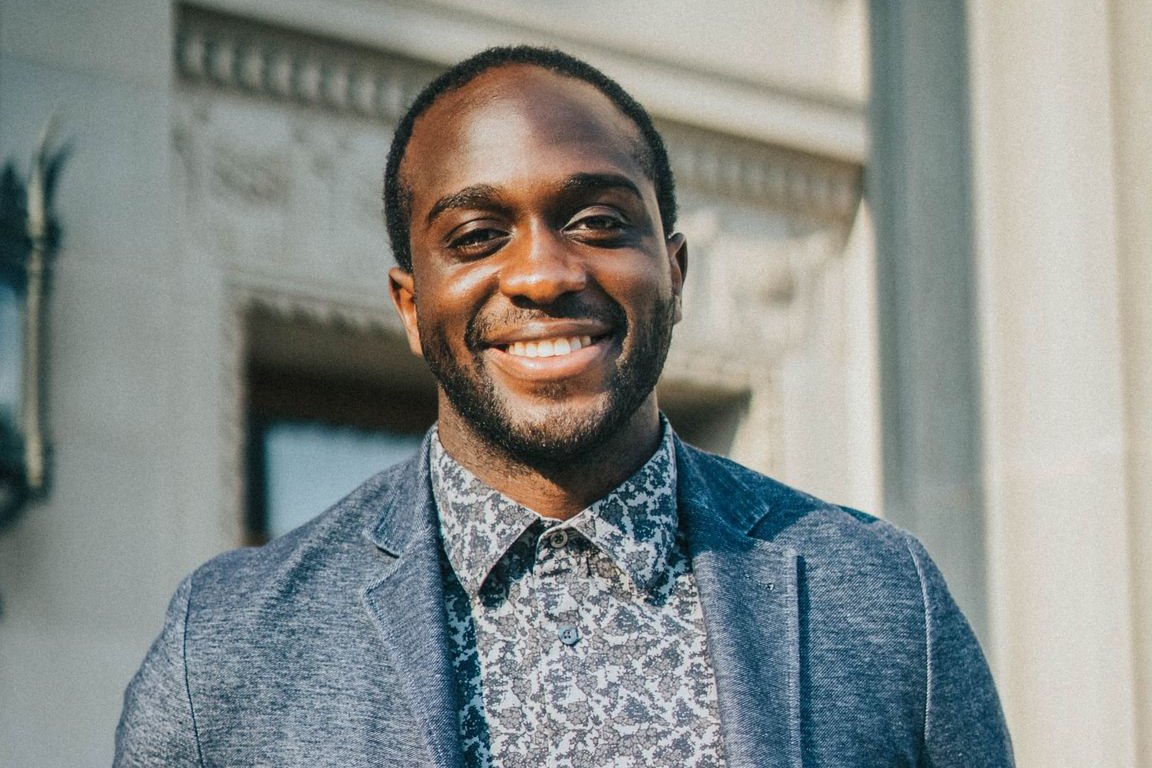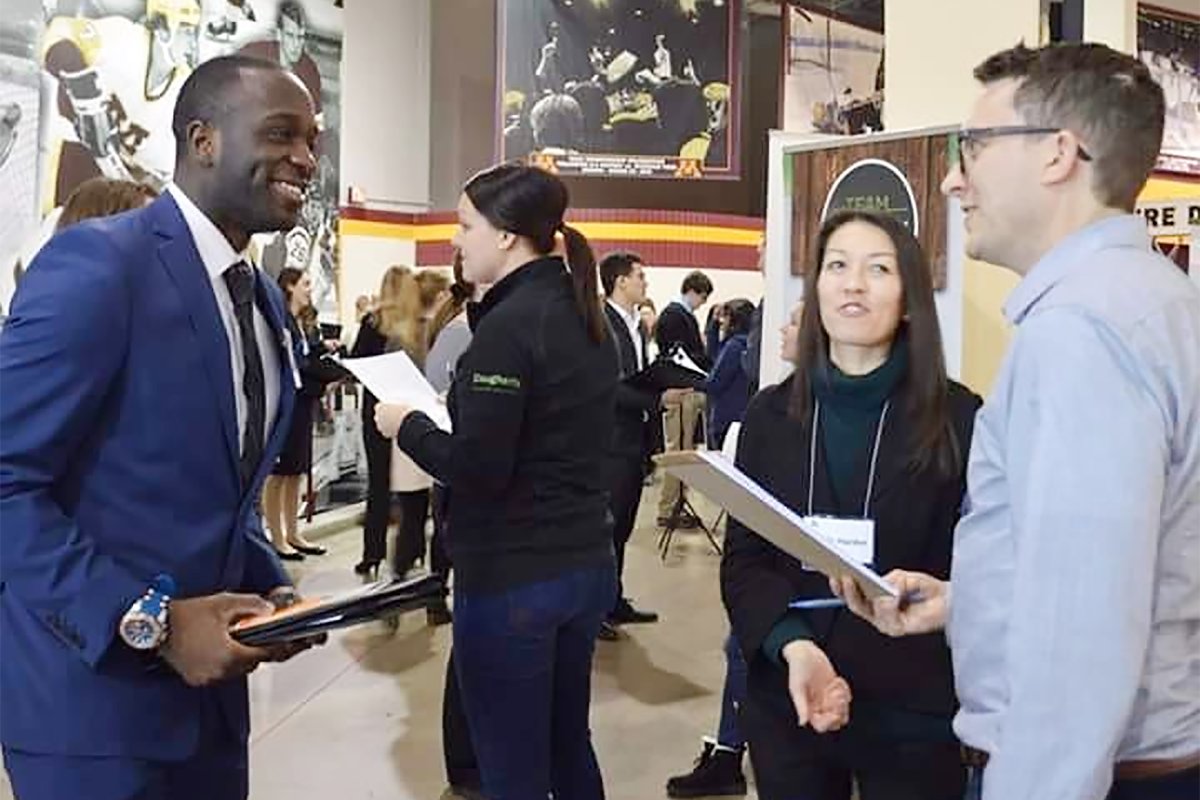African roots, global view

Above: In his role as UMN NSBE Academic Excellence chairperson, biomedical engineering graduate student Sylvester Nwosuji Jr. mentors undergraduate students and plans career development events.
Photos courtesy of Sylvester Nwosuji Jr.
Editor’s note: This May, Sylvester received a 2021 President's Student Leadership and Service Award. The story below first published in Inventing Tomorrow, the College of Science and Engineering magazine, winter 2021.
CSE student stays open-minded in a year of unrest and a coronavirus outbreak
December 22, 2020
As a child, Sylvester Nwosuji Jr. liked tinkering with things. When the TV wouldn’t work, for example, he would think of ways to fix it. “Every time I was successful, I imagined what else my brain could do,” said the graduate student in biomedical engineering, with minors in electrical engineering and industrial and systems engineering.
That curiosity led Nwosuji, who was raised in both Enugu State, Nigeria and Columbia Heights, Minnesota, to discover that he was pretty good at math and science too. Nwosuji chose the pre-med track during his undergraduate years at the University of St. Thomas.
However, his thoughts of becoming a doctor evolved prior to earning his degree in neuroscience with minors in mathematics and physics in 2019.
“When I heard about biomedical engineering in my sophomore year, I couldn’t believe it,” he recalled. “There was actually a way to combine engineering and medicine.”
“I remember spending many nights just reading up about this field and watching a lot of videos just to learn more about it,” Nwosuji said. “I even found a mentor, a biomedical engineer at Integer, a company in Plymouth [Minn.] to answer all my questions about the field, be a support system, and give me career guidance. I later joined him as another graduate student in the biomedical engineering program at the University of Minnesota.”
Today, Nwosuji eagerly shares this passion for his newfound field—and STEM in general—with others. Being an active role model is one way he’s done this.
Nwosuji is a teaching assistant in the 2000-level “Programming for Biomedical Engineers” course for undergrads, and he serves as Academic Excellence Chairperson in the UMN National Society of Black Engineers (NSBE).
“My role is to make sure that Black engineers are well prepared academically and career wise,” he explained.
“For example, I planned and led a GRE prep event,” he said. “I give tips and tricks on time management and how to prepare for grad school through my other events, which I can personally share because I have been through the process of being a prospective graduate student.”
Mentoring children is close to his heart as well. Whenever opportunities arise to do this, he jumps at it.
“I feel like our youth have so much to give, and there is untapped potential especially in the Black and brown communities,” said Nwosuji, who lost his father when he was 13 years old. “When I was young, I didn’t see a lot of Black men in healthcare until I was older. Now I have a platform to inspire kids to do STEM, healthcare, or anything they put their minds to. This is important to me because someday it will be me passing the baton and them taking over what I do when I get older.”

Besides NSBE, Nwosuji divides his free time among several groups on campus, including the African Student Association, Black Graduate and Professionals Student Association, and the Society for the Advancement of Chicanos/Hispanics and Native Americans in Science, Community of Scholars Program, and other multicultural organizations.
“I like to interact and be in the company of others who are similar to me, and also different from me,” he said. “I feel like sometimes the biases we have limit us—and we only see ourselves fitting in with one group. I don’t limit myself.”
“For me, it’s important to listen to the issues of people with identities outside of mine so I can be an ally and stand in solidarity,” Nwosuji said.
In a year of discontent—brought on by a pandemic and fueled by racial injustice and uprisings, as well as political polarization—Nwosuji’s open-mindedness is refreshing.
“I’m trying to make sure that even if an injustice didn’t happen in my own backyard, I still fight for the people and the communities who face it,” he noted, “whether they’re here in the U.S., in Nigeria, or somewhere else in the world—in every way I can. Without overstepping boundaries, each of us can learn what we can do to be helpful.”
Read more stories from our Winter 2021 college magazine.
By Pauline Oo
If you’d like to support students at the University of Minnesota College of Science and Engineering, visit our CSE Giving website.
